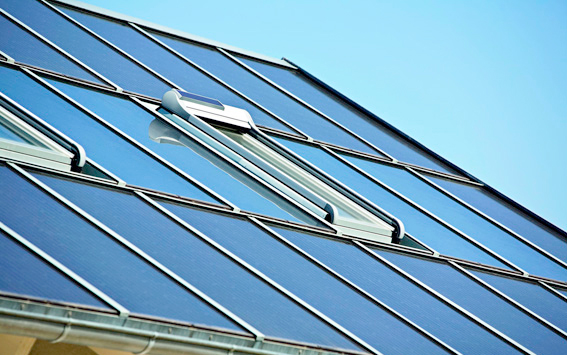
With news that the International Energy Agency (IEA) expects solar to become the biggest single source of energy by 2050, the expectation is that rooftop solar will account for around half of the world’s total solar PV installations.
However, Savills Energy’s Giles Hanglin is warning that work still needs to be done if the UK is to benefit from this trend and is calling on the Department for Energy and Climate Change (DECC) to outline the next steps in its solar strategy.
Hanglin, who looks after the national coordination of solar rooftop delivery for leading property and energy consultancy Savills Energy, has suggested that three areas need to be progressed if solar PV is to reach its full potential in the UK: grid capacity, property valuations and the impact on leasehold and tenancy agreements.
At a recent briefing with DECC, Hanglin said: “With around 70% of the UK's commercial property being leasehold, this is an area that certainly has to be broached to allow substantial growth in capacity of solar PV on rooftops. Indeed, all of the evidence from our valuers and third parties shows that solar can add significant value to a commercial property.
“One of the challenges this raises is that average commercial lease lengths are under 10 years, while landlords need to be persuaded to make what is typically a 25-year investment in solar.
“The legal suite of documents for the roof sublease, power purchase agreement (PPA), installation procurement and operation and maintenance (O&M) contract must be right in order to ensure that a property and the agreement around it can be valued with accuracy.”
Hanglin went on to outline the benefits to both landlords and tenants looking to invest in rooftop solar. He said: “When you consider the returns on investment, capital appreciation, improvement in EPC ratings of buildings, as well as improvement in their CSR and green credentials, the opportunities for landlords looking to take on solar PV installations are considerable. There have also been a number of studies showing how solar can add value to a commercial property.
“Alongside the potential electricity cost savings from the discounted solar PV electricity, business tenants will also be able to take advantage of improving their green credentials and CSR. There have been some really positive announcements from top tier retail names of late, in terms of investing in large scale rooftop solar, but there is still plenty to be done.”
Calling on DECC to outline the next steps in its solar strategy, Hanglin said: “We believe commercial rooftop solar will prove to be vital in helping to meet future energy requirements. As such, we welcome the DECC consultation into increasing permitted development under planning up to 1MW in size and also the discussion around plans to allow rooftop solar installations to be transferred between buildings without losing Feed in Tariff (FIT) accreditation.
“The investment all parties are making at the moment to ensure that rooftop solar works effectively will pay dividends for our long-term energy security and we look forward to working with DECC to overcome potential barriers to success.”
